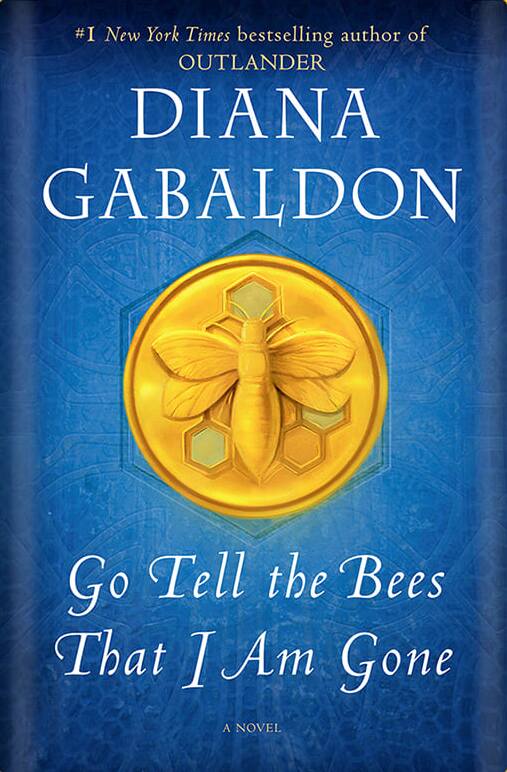Sometimes faith is all you have. But it’s enough. - an interview with Diana Gabaldon
"...when you write about time-travel, you need to consider what kind of story it is: some stories are all about the How, and others are about the Why. Mine is about the If. What Happens IF… What does time-travel do to the traveler? Not just physically, but mentally—and morally?"
One overturned domino block changes the reality. Sometimes it is planned, sometimes it happens by accident. What was the domino block for Outlander?
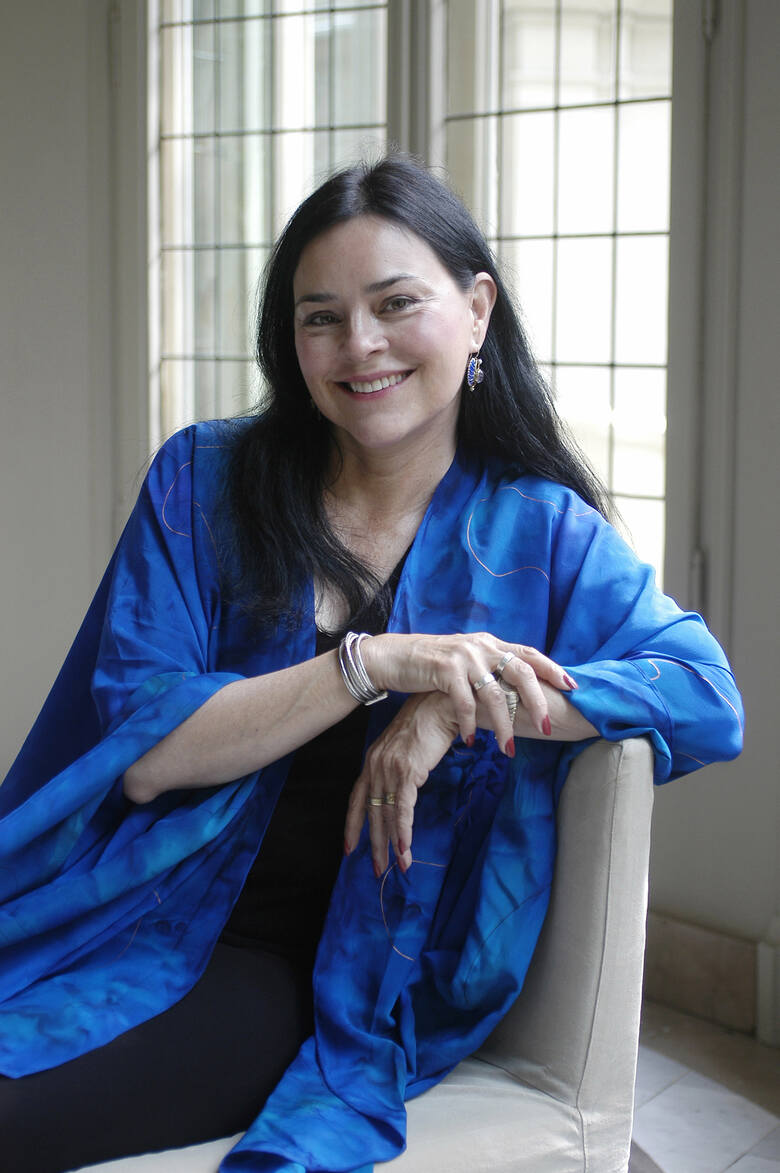
I knew from the age of eight or so that I was meant to be a novelist (I had a brief conversation with God about it and He said He thought that was a good idea), but no idea how to go about it. (No one does, really. Anyone who writes a novel has to discover “how” for themselves.) But the actual domino block, I suppose, would have been my impending 35th birthday. (I had become a scientist in the meantime, but still knew I was supposed to be a novelist.) I thought, “Mozart was dead at thirty-six.” And my own mother died at forty.
So I thought that if I wanted to write a novel, perhaps I should start. I also thought that—if I didn’t die young—I didn’t want to turn 60 and think I should have tried when I was younger. So, I thought, “OK, I’ll try.” And apparently God and I were right; I was supposed to be a novelist. And I suppose it’s too late for me to die young, at least…
Why Scotland? And why this time?
I intended to write a novel for practice, in order to learn how. (There really isn’t any other way to learn to write.) So, the first question was: What sort of novel should I start with? I thought about that for a bit, but it seemed obvious (to me) that a historical novel was likely the easiest thing for me to start with: I was a research scientist with three academic degrees; I knew my way around a library, and it seemed easier (at the time) to look things up than to make them up. And (I thought) if I turned out to have no imagination, I could always steal things from the historical record. (This actually works pretty well….)
So I was casting about for an attractive historical period, and while ruminating on various possibilities, I happened to see an old (very old; I think these episodes first aired in 1969; I would have seen them as public-TV re-runs many years later) “Doctor Who” serial, in which the Doctor had acquired a young Scotsman as a companion, picked up off the battlefield at Culloden. The young man wore a kilt, and I thought, “Well, that’s rather fetching.”
So, a few days later I was in the church parking lot, after Mass. I’d been thinking about a man in a kilt, and a scatter of words came along with the thought (that’s what I need to start writing every day; a few words need to show up, to give me a foothold). So I (being alone for once! - I had three small children at this point, but they didn’t come to Mass with me unless my husband was along to help wrangle them) dug a crumpled piece of notepaper (an ex-grocery list, most likely) out from under the front seat of the car, and jotted down those few words (and no, I don’t recall what they were, though there was something about a grave…).
The next day, back at the university, I went along to the library and looked up “Scotland, Highlands, eighteenth century” in the (newly digitized) card-file…and then we were off.
Your mother's family is from Yorkshire, your great-grandfather immigrated to Arizona from England around the 1860s. Have you been to Yorkshire? I am still on my way to the moors around Haworth where the Bronte sisters lived. I have a feeling there is some mysticism there and further north towards Scotland.
I have been (briefly) to Yorkshire, twice. The first time was back in 1992, when my husband and I went to Scotland for the first time. We rented a car in London and drove up one side of the country (through Yorkshire, among other places) into and through Scotland, and back down again. We spent two weeks on the trip, and it was fabulous. I had no trouble whatever understanding anyone in Scotland—not even the Glaswegians --but I couldn’t understand a Word of anything anyone said in Yorkshire.
I went again, twenty-five years later, on an invitation from Sheffield Hallam University, in Yorkshire. My great-great-grandfather, Godfrey Sykes (there were a lot of Godfreys in the family line), had been the Deputy Head of the College of Design, lo, these many years ago, and a new administrator had been poking around in that department and discovered some important art-work done by Godfrey, stored away in a shed and forgotten. They decided to have a retrospective of his work, and while researching his life, discovered me.
I got an email saying, “Do you know that you’re the great-great-grand-daughter of Godfrey Sykes?” I replied that yes, I did…why? They explained about their retrospective program, and asked me if I would come and give a talk as part of it. So I did; it was very moving.
...and what about moors?
You’re right about the moors. Most very wild places still have a perceptible sense of mystery. With them, it’s more about the plants and the soil, while it’s the rocks where I live.
People have always dreamed of travelling back in time. You made it possible for us. You made our dream come true. You showed people what it could be to try to change their destiny. Not everything is possible, and a change for the better in one place results in a change for the worse in another...
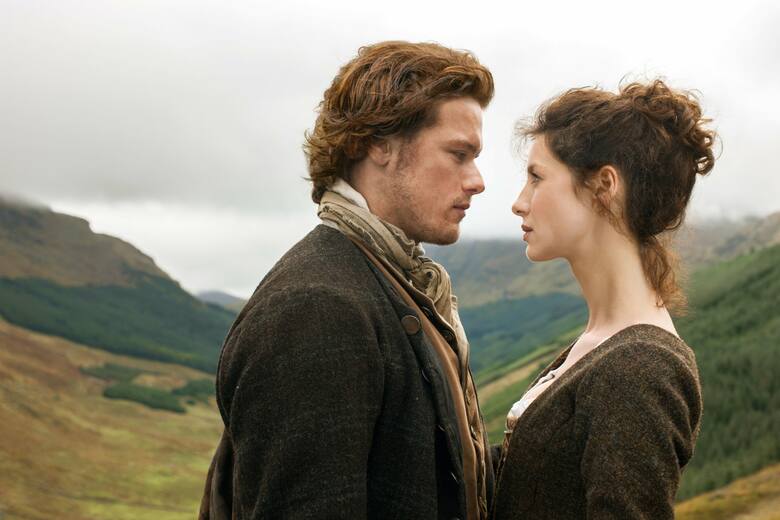
Well, when you write about time-travel, you need to consider what kind of story it is: some stories are all about the How, and others are about the Why. Mine is about the If. What Happens IF… What does time-travel do to the traveler? Not just physically, but mentally—and morally? (I.e., some things are Wrong in one time, but perceived as innocuous, necessary or even Right in another. How does a time-traveler decide (if it’s even a conscious decision) whether to apply their modern moral sense, or abide by the situational ethics of the 18th century?
(Often it’s not a clear decision; social systems are flexible and adapt fairly easily, but they exist as they are for a reason. Trying to contravene a circumstance that exists as it does for a strong underlying reason is a good way to get yourself killed, and quite possibly several other innocent people, too.
Vide the scene in Drums of Autumn where Claire and Jamie find the slave who’s been impaled on a hook. From a 20th century point of view, you just don’t do things like that! But the people who impaled the slave were living in a system that caused terrible things like that to happen—largely out of fear.
For Claire to have tried to insist (as she stupidly does, in the show) on taking him home and treating his injuries would be a) pointless, because the men who put him up there aren’t going to let her contravene their actions and b) bloody dangerous, for the same reason.
Jamie, who is equally shocked but has a much better understanding, both of the situation and the people involved, understands both those things, makes them clear to her and protects her while she does the one thing that’s possible for her to do without getting herself and Jamie killed as well.)
It seems to us that travelling back in time, with our knowledge we could do much more, but you prove that we would face challenges that, despite the knowledge, we would not be able to meet, that everything has its time and that the quality of our life does not depend on time, but on how we will use it...
Well, as I say, if you’re going to write about time-travel, you need to make a few decisions: one of the most important (from a technical point of view) is to decide how it works. Not (necessarily) the mechanism by which the travel is accomplished—though we (when I say “we”, I mean me and the people in my head) are gradually explicating that over the course of the books—but how does it work in practice?
For example, a LOT of fictional time-travel stories are based on the notion that knowledge is power, under all circumstances. I.e., a time-traveler will always be at an advantage, owing to his (or her) greater knowledge, and can (perhaps) change the future by changing the past.
The notion that the past affects the future is pretty undeniable, but how that happens is open to serious question. So you’re dealing with questions like, “How much power might a single time-traveler actually have, to affect the future?”
I thought about that (in a leisurely fashion, while writing), and came to the conclusion that the ability to actually affect the future is both universal and limited by circumstance. To wit: Everybody affects the future, every day, and irrespective of the ability to move through time. You’re walking down the street and you hear someone screaming in a nearby alley. You call the police; they don’t arrive in time to save the person’s life, but they catch the perpetrator. If you hadn’t called, that person would still be at large, presumably doing damage to other people.
Or you rush boldly into the alley yourself and pepper-spray the bad guy. The potential victim is saved, but the bad guy staggers off and escapes, coughing and wheezing, but still a threat to any number of other people.
Or you hunch your shoulders and hurry past, thinking it’s probably a domestic spat and not your business, leaving the situation to play out as it will.
See? You don’t need to be a time-traveler to affect the future of any number of people; all of us do it routinely—and unpredictably. Does being a time-traveler give you much more power to predict the effect of your actions? Maybe, maybe not.
History is actually not What Happened. It’s what someone(s) wrote down. A good bit of what we call history involves deliberate falsehood (consider that newspapers are a major historical record/resource. Read any newspaper published today, and I guarantee you, it contains hundreds of bits of false information, some deliberate lying or misrepresentation, others simply inadvertent or careless mistakes or the effect of genuine ignorance.
So maybe your time-traveler thinks they know that something happens—but they really don’t know what the truth of the situation may have been. Things are always more complex than they appear—and so are the results of any person’s actions, any time. As Claire notes (more than once), she changes the future every time her medical skills help her to save someone’s life—because that person would, almost certainly, have died without her intervention. So what if the person she saves is a genuinely Bad Person? Her Hippocratic oath as a doctor keeps her (mostly) from judging a person’s worth before helping them—if her help is needed, she’ll give it.
The described reality is not a problem. We know it. Problems arise when you describe the past because you must have historical knowledge. How are you preparing to write? How much time do you spend on getting to know the details of the historical background?
Back in the day, when I was just hanging around the Compuserve Literary Forum (this would have been in the mid-80’s; the internet existed only in very rudimentary form: besides military spaces like DARPAnet, there were basically only three “information services”—CompuServe, GENIE and Delphi) and hadn’t yet decided that it was time to write a book, I knew a few people who were “working” on historical novels. Most of them actually weren’t working on the novels—they were doing research in preparation for writing.
OK, you need research for a historical novel, no question about that. But how much research, that is the question…and most of my friends were answering it with “but I don’t know enough yet to start writing!” So they’d been researching the third Byzantium Empire for ten years, and hadn’t yet written a word of the actual book they had (hazily) in mind.
I saw this happen over and over, and before I decided to begin, I’d already decided that this was not the way to go.
Logically, there’s always more you could know, and thus—logically—if you thought you had to know “everything” about your period and location, you would never have to really start writing. I knew my goal was in fact not to know everything about Scotland in the 18th century; it was to learn how to write a novel.
Ergo, I decided that I’d just start writing, with whatever I had in my mind, and do the research as I went along. That’s proved to be a good technique: the writing and the research form a kind of positive feed-back loop, in which I begin a scene, run into a detail that I think I need to know, go look it up, find the detail I need—but also run into a lot of fascinating stuff I didn’t know existed, some of which stimulates new writing, new scenes, new directions and characters—and as I write all the new stuff, again I find all kinds of things I need to know, and so it continues. It’s not what you’d call a plan, exactly, but it works.
I will tell you that there’s a lot of serendipity involved in doing historical research—but the more you do, the more likely you are to find things you need, whether you were looking for them or not.
The main character's mercy is almost infinite. She is following the evangelical "seventy-seven times"... Does forgiveness, humanly speaking, have limits?
Well, it does, because life has a limit. Beyond that, though—no, I don’t think so. Especially once you realize that you don’t forgive people for their sakes; you do it for yours. Forgiveness is the only way to heal yourself, and in some situations (e.g., a person recovering from substance addiction, say…), you have to do it pretty much every day .
(Innate pedantry obliges me to observe the Biblical passage isn’t “seventy-seven times”; it’s “seventy times seven”—i.e., 490 times.)
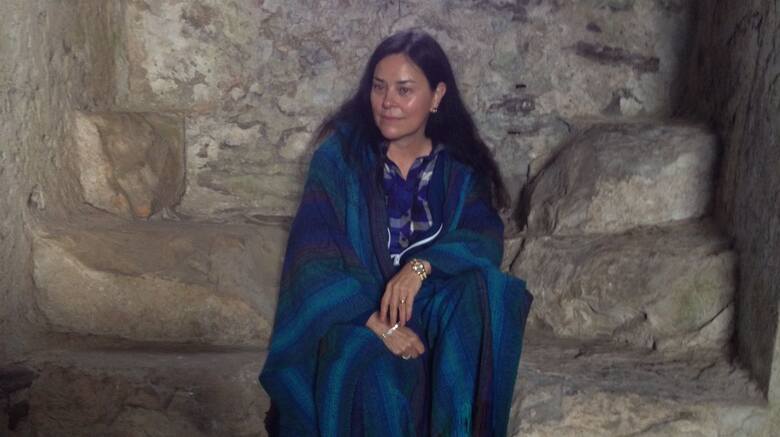
Claire leaves Jamie to go back to the future. He is affected by the same scale of feelings faced by parents of children who died during or immediately after childbirth. He knows his baby is alive, somewhere... It is faith after all... Jamie finally meets his daughter. Beautiful message...
Sometimes faith is all you have. But it’s Enough.
For a man, helplessness is the worst. The powerlessness that lies in the fact that he cannot always protect his loved ones. You show it in the novel many times... in different shades...
It’s not a popular opinion these days , but I really like men. Owing to my assorted career choices, nearly all of my colleagues and close friends were men, until I turned forty or so (and had written a book that publishers decided to market solely to women…). I have three very close female friends (four, counting my sister), all save my sister acquired since the age of forty—but more close male friends. (Mind you, “close” has a slightly different meaning with men.)
But you don’t spend that much time with men without noticing how they work (well, you don’t if you’re a behavioral scientist, let’s put it that way…). At its most basic evolutionary level, it’s simple: women know they must survive, because their children can’t survive without them. Men know they have to protect their women and children, so their children will survive—but they, themselves, don’t necessarily have to survive.
This genetic imperative (if you will) is why the drive to protect is so powerful—and why a man who can’t protect his family (or friends, or cause, or whatever) suffers great distress.
Jamie suffers that—but he’s also aware that he has protected both wife and child, as well as he possibly could, by sending them back through the stones, and that knowledge (plus the fact that he is still looking after his sister and her family) is what’s keeping him sane through the years of loneliness and captivity (when he has his men to look after. He recognizes that, himself—“the love of them kept me alive,” is what he tells Claire (about the Ardsmuir prisoners)). And then…there’s William.
Outlander has become a monumental novel. There was never such a novel like this. You discover a new literary land. You cannot be compared to anyone...
Well, thank you. When I began writing a novel, I decided not to tell anyone what I was doing and not to show it to anyone; I wasn’t aiming at publication—all I wanted was to learn to write a novel. I didn’t want any pressure, any helpful advice, anyone telling me that I was doing it “wrong”. That decision let me work with complete freedom, and is the reason OUTLANDER (as an entity, as well as the first book) is not really like anyone else’s (though of course it resembles a lot of other stories—I’ve read all my life, and naturally all that fertilizes my sensibilities…).
Since that approach worked very well for me, I decided to keep that sense of freedom—and while I did begin to let people (well, my husband) read parts while I was working, I didn’t ever worry about, “Oh, will my publisher like this? Will the readers be annoyed that I didn’t do X?”, etc.
Your work is not only a history lesson told in a thrilling way, it is also a penetrating life lesson, and finally the most beautiful lesson of love
Thank you again. As I think I said above, all good (and some not-so-good) books deal with love, whether explicitly or implicitly, by its presence, its absence, its permanence or evanescence. It’s always there. (My father actually told me that—or something like it.)
Your novel, can said, is steeped in the letter of Saint Paul to the Corinthians. Looking at great love of Claire and Jamie you are starting to understand what it means that "love is patient... is not like prophecies that will end... or knowledge that will run out... Love never comes to an end. Never...
Well, you know, if you deal with time, patience is kind of necessary…
"Outlander" - a novel woven of hope, infusing faith in the existence of a deeper meaning, excluding the randomness of fate ... about love over loves...
People tend to write about what they know, whether that knowledge is factual, emotional, or spiritual.
You have become immortal thanks to the Outlander. How do you feel with it?
Well, I’m not sure I’ll live long enough to be sure of immortality. But I’m glad that the books have lasted so well, so far: the hardcover edition of OUTLANDER, first published in 1991, has never gone out of print, nor do I expect it to, unless I’m convicted of un-wokeness and canceled, but I can’t say I expect that to happen…
Are you aware that your name will be exchanged in the same breath with Jane Austen, the Brontë sisters, that you have made your story a part of the history of literature?
Only time will tell about that, but if so, I would certainly be in good company.
You and J.R.R. Tolkien. These are the two greatest literary phenomena of all time. Has anyone ever told you this?
Well, some people do. Some people dismiss me as a “romance writer,” thinking that I write the same sort of stories that you would find in the supermarket—Harlequins and Mills and Boon. Which is, I might say, a disservice not only to me, but to the authors of those novels, which are, by and large, doing highly skilled story-telling in a noble service, and a source of great pleasure and emotional use to their readers. But while both those authors and I are talking about love (and, in fact, so are all good authors and good books), it’s done in different ways, and what I’m doing is—as you note—not something that’s commonly done.
I have to ask... How much of Claire is in you?
Some years ago, I was at a tea held for me by a nice group of fans who would get together every spring and invite me, for the purpose of picking my brains about what I was writing. (As I say, this was years ago—well before social media. I couldn’t/wouldn’t do such a thing now.)
On one of these occasions, the women got started on the character of Black Jack Randall. “Oh, he’s so loathsome! He’s such scum! He’s disgusting! He makes my skin crawl!” And me, just sitting, pleasantly sipping my cup of Earl Grey, and thinking, “You have no idea that you’re talking to Black Jack Randall, do you?”
I mean…who else would any of them be?
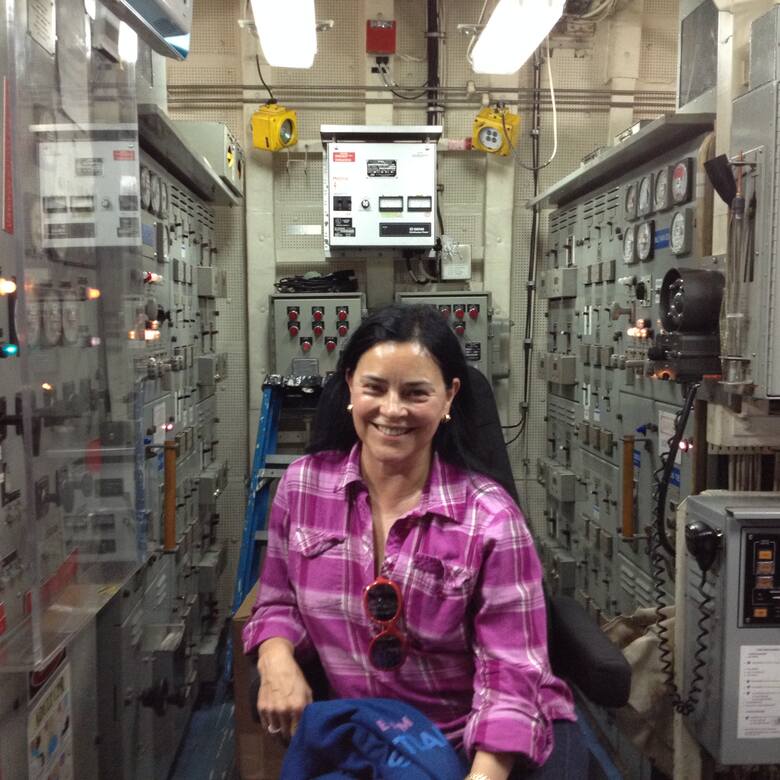
The new part of the story will be available in November. What's next? Do you already know the end of Jamie and Claire's story?
No, I don’t. There is a Book Ten, though, as well as a Prequel about Jamie Fraser’s parents and their friend, Murtagh.
I hope when the pandemic is over, we will be able to arrange a live interview...
I hope so, too! My new Polish publisher has invited me to come to Poland in May. We’ll see what the world is like, then.
You do not force us to reflect. You are drawing us into it imperceptibly. We don't even know when we start thinking Diana's way.
I don’t think you can force people to reflect. You can force them to parrot your opinions, but you can only persuade them to share them—and you can only gently suggest the possibility of reflection on them.
It is probably the novelist's greatest dream, when the reader looks at the world, the things happening in it, and finally his life, by its (the novelist) categories of understanding...
You never read the same book twice. Everyone who reads must necessarily bring themselves to the experience, and people change. You’ll see different things in a book that you re-read at intervals. The book hasn’t changed—but you have.
The book IX "GO TELL THE BEES THAT I AM GONE" will be released on November 23rd...
